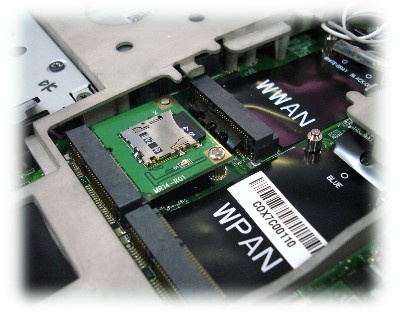Generic Mass Storage Device Driver



The USB mass storage device class also known as USB MSC or UMS is a set of computing communications protocols defined by the USB Implementers Forum that.
Mass Storage Devices
Windows 98FE USB Mass Storage Device Drivers. These drivers offer generic USB mass storage support for the original release of Windows 98, sometimes called.
Super User is a question and answer site for computer enthusiasts and power users. It s 100 free, no registration required. Sign up.

The mass storage device driver can potentially be used with a wide a
wide range of USB devices, not all of which would normally be
considered to be mass storage. This is because the driver is really an
interface between the USB stack and the SCSI layer. Despite this, the
instructions in this section are oriented around devices like USB
floppy drives, Zip drives, LS120 drives and USB CDROMs.
Since the mass storage driver presents the USB device as a SCSI
device, you need to turn on SCSI support, which
is under SCSI support in the configuration
script. You should also turn on subordinate options as appropriate to
your mass storage device - usually one or more of SCSI disk
support, SCSI tape support,
SCSI CD-ROM support and SCSI generic
support.
After you have compiled the kernel and rebooted or added the relevant
modules, which is usb-storage.o,
you should check /proc/scsi/scsi. Information
about your device should be listed.
You can now mount your device. The exact syntax depends on the device
type. The best way is to make suitable entries in
/etc/fstab. A suitable entry for a floppy disk
would be:
/dev/sda /mnt/usbfd auto noauto,user 0 0
A suitable entry for a Zip disk would be:
/dev/sda4 /mnt/usbzip vfat noauto,user 0 0
A suitable entry for a CDROM disk would be:
/dev/scd0 /mnt/usbcdrom iso9660 ro,noauto,user 0 0
A suitable entry for a hard disk with a single partition would be:
/dev/sda1 /mnt/usbhd ext2 defaults 1 2
Note that the above entries assume you have no other SCSI devices. If
you do have other devices, then the USB disk may not be
/dev/sda, but could instead be
/dev/sdb, /dev/sdc or some
other device. You would then need to substitute the right device entry
for /dev/sda or /dev/scd0
in the entries above.
Having created the entr y/ies in /etc/fstab, you
need to create matching mount point s in the actual filesystem. So if
you made an entry as shown above for the USB floppy disk, then the
mount point would be made as root by:
You should now be able to mount your floppy disk with a command like:
or like.
Windows 98 USB Mass Storage Device Drivers. USB flash drives and other USB mass storage based devices are becoming more and more common. Unfortunately, they.
Mass Storage Devices. The mass storage device driver can potentially be used with a wide a wide range of USB devices, not all of which would normally be considered to.
Introduction The purpose of this page is to describe the Linux USB driver solution for Zynq. The driver is made up of multiple drivers to support host, device, and On.
An1189 ds01189a-page 6 2008 microchip technology inc. example 6: msd inquiry response string figure 2: mass storage device as it appears in device manager.